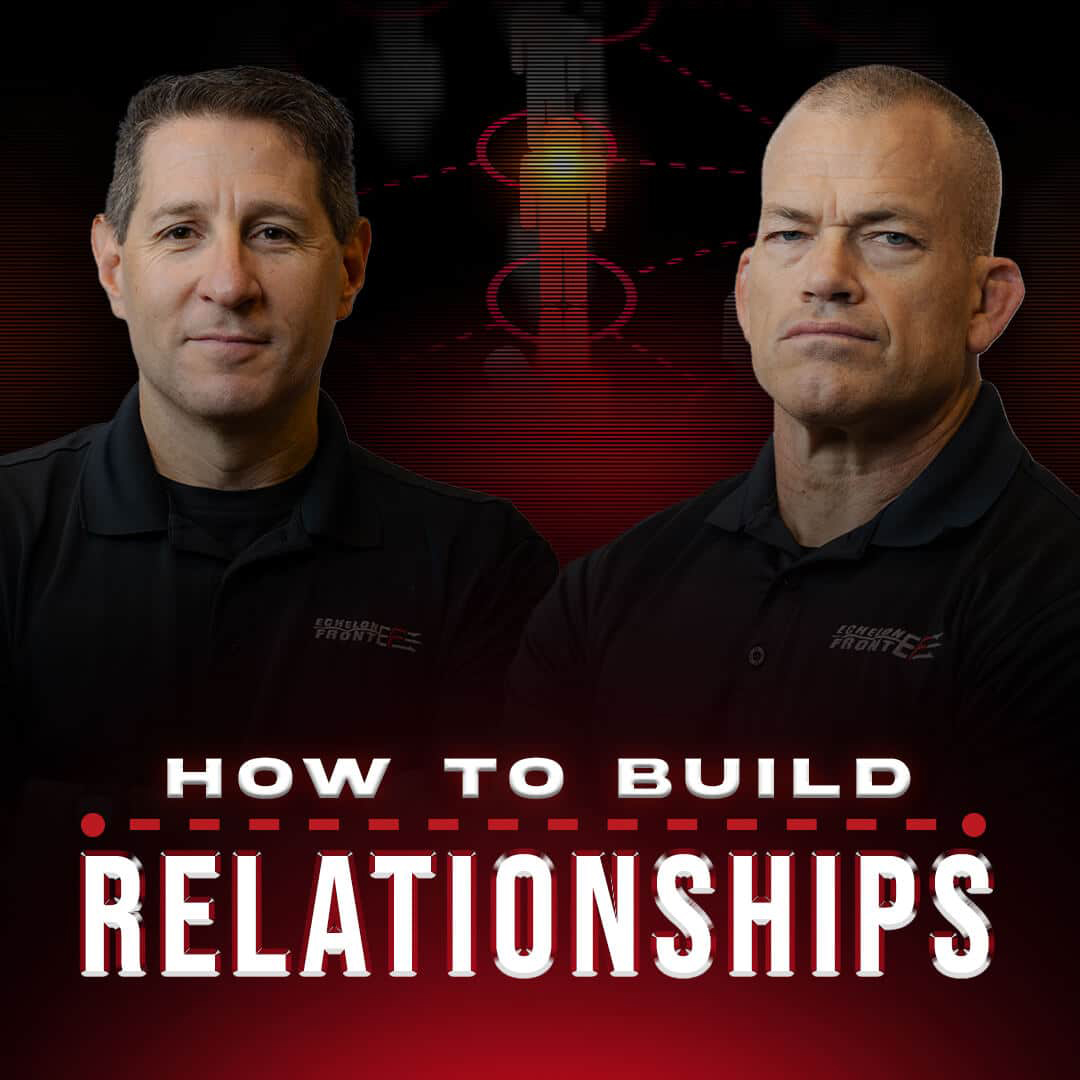A question we often receive from clients is: what is business relationship management? In other words, people want to know how to manage and build professional relationships. We often associate the word relationship with something personal. Someone we intrinsically like and want to spend time with, but we know in business, we won’t like everyone we meet. Whether it’s a client, vendor, partner, co-worker, or other stakeholders we must interact with, we’re guaranteed to meet people who think and behave in a way that we don’t agree with. However, just because we don’t like someone doesn’t mean that we can’t build a strong relationship with them, and in order to accomplish our mission, we must do this.
The Role and Importance of Business Relationship Management
At Echelon Front, our first Law of Combat is Cover and Move, and the core of Cover and Move is building relationships. Relationships are the key to breaking down silos in an organization and creating true teamwork. When we know the people we work with and understand how to support them, we can begin to develop the pillars of a relationship that are necessary to work together effectively.
Creating these solid business relationships opens up a clear pathway for the other critical aspects of leadership – communication, alignment, empowerment, etc. Without the foundational relationship, these other components of leadership are much less effective or completely ineffective. So, if you’re struggling to work with another person, start by assessing the state of your business relationship and identify the key components of that relationship that are missing.
Key Components of Business Relationship Management
Business Relationship Management encompasses several key components:
- Trust: Mutual trust is key to effective business relationship management.
- Respect: Being respectful towards others is also foundational to a healthy business relationship.
- Listen: A willingness to listen to the other person ensures an effective communication dynamic within a business relationship.
- Influence: The ability to influence another person is also core to gauging the state of a relationship.
Implementing Business Relationship Management
To have a good business relationship with someone, all four of these components must be reciprocal. However, we know that we can only control ourselves. So, to effectively gain each of these components, we must first give them. If we want someone to trust and respect us, we have to trust and respect them. If we want someone to listen to us, we must first listen to them. If we want someone to be influenced by us, we have to let them influence us first.
We have further detailed how to implement these components in our [building relationships course].
The Measure of Effective Business Relationship Management
Ultimately, what people want is to know that the people interacting with them care. When we think about building mutual trust and respect, listening to others, and letting them influence us, we’re showing them that we care. We care about their needs, what they think, how they want to do things, etc. The more we trust them, respect them, listen to them, and allow them to influence us, the more they know that we care about them. When people know that you care about them, they are willing to do almost anything for you.
The Silent Killer of Business Relationships
There is one main setback to building these strong business relationships, and it’s our ego. Our ego does not want to build these relationships. Especially with someone who does not behave or think like we do. We come up with every excuse we can think of to avoid putting our own ego in check to build a business relationship:
- “They need to earn my respect”
- “I’m in charge, so they should just do what I say”
- “They don’t do their job, so why should I support them”
These are just a few of the many things our egos tell us to convince us that we shouldn’t try to build a better business relationship with someone else.
The Strategic Aspect of Business Relationships
Business relationship management is a long-term play. Building relationships takes time and effort, and the results aren’t always immediate. We tend to fall into the tactical trap of focusing our efforts on “getting things done” instead of building relationships. But if we are willing to make small sacrifices in the short-term, those strategic investments in a relationship can pay massive dividends in the future.
Conclusion
Understanding what is business relationship management is key to success in the business world. It’s a strategic approach that focuses on nurturing and leveraging relationships for the benefit of the entire organization. By investing in these business relationships, companies can build a strong network of partnerships that support their growth, innovation, and overall objectives.




